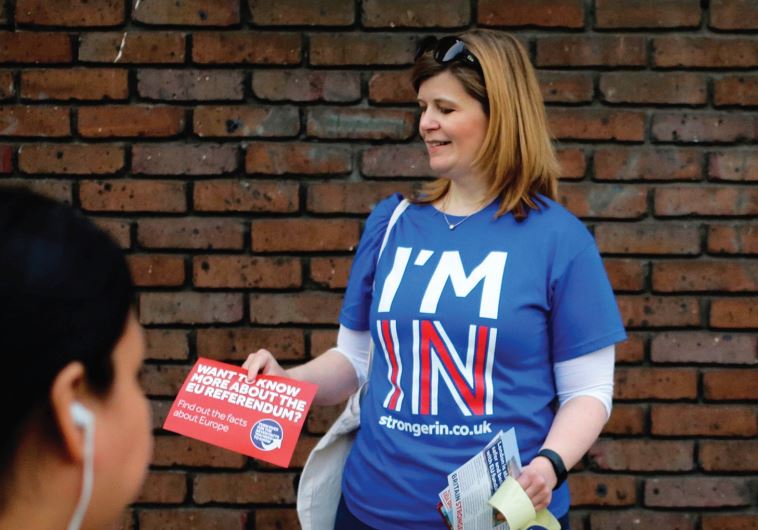As I see it: The UK referendum and the politics of hate
Britain’s EU referendum turned into a culture war. The divisions are savage and won’t go away. British Jews are on both sides.
 A WOMAN hands out leaflets last month, campaigning to stay in Europe for the Brexit vote, in London.
A WOMAN hands out leaflets last month, campaigning to stay in Europe for the Brexit vote, in London.